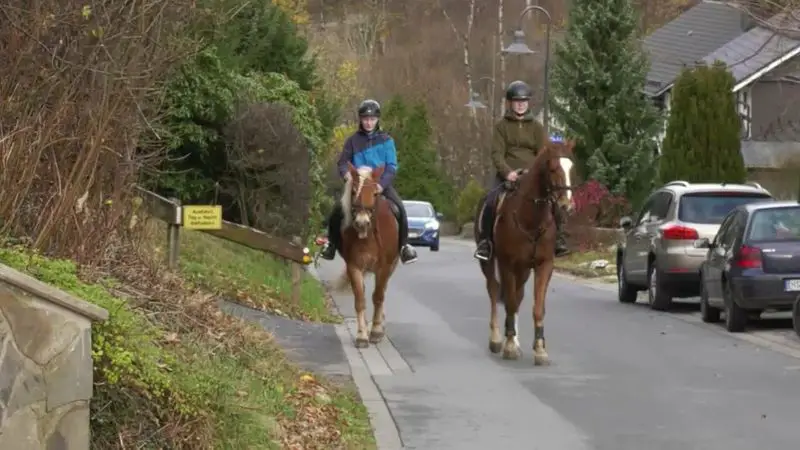This news is both entertaining and thought-provoking, a horse beat file transfer speed. The German Internet is so slow that a race was held between it and a horse to transport 4.5GB: The horse won. At the dawn of the teleworking era, good Internet connections are becoming almost as important in the workplace as electricity.
In Germany, things are considerably worse, and the problems are now much more serious than they were in certain of their road infrastructures a few years ago. Rural Internet speeds have become so sluggish that Klaus-Peter Kappest, from Woll magazine, jokingly designed to make a joke about it.
As he had not yet had fiber installed, he was frustrated and wanted to compare who would win: his 1.5 Mbps (downstream) connection by uploading 4.5GB of photos over the Internet or a rider on horseback riding 10 kilometers to bring the DVD with the photos from Oberkirchen to Schmallenberg, where they were to be printed.

The horse won, even starting later
Klaus-Peter Kappest hired the rider and gave him the DVD to carry to the destination. However, he started uploading the 4.5GB of photos to WeTransfer 20 minutes before the horse left for the printer. And yet the horse, which was accompanied by another horse on its way, won. In about an hour and a half, the DVD had been delivered, while the upload to WeTransfer took more than four hours.
The horses had returned to the stable long before the upload was finished. It’s a situation that perfectly illustrates what we mentioned at the beginning, that teleworking can be tricky under certain conditions 4.5GB is not even an exorbitant amount of information compared to working with video files.
The case of Klaus-Peter Kappest is amusing because the fiber optic cable had been in his basement for eight months, ready to be activated. However, Deutsche Telekom, his service provider, had not scheduled an appointment with the installer.
With a 100 Mbps fiber connection, the upload would have taken less than 10 minutes. With a 300 Mbps connection, less than 3 minutes.
The physical transportation of hard disks might be useful when there are a lot of data, but 4.5GB is insignificant in most cases. The upload would have been done in less than eight minutes if Klaus-Peter Kappest had a symmetrical 100 Mbps fiber line and if 75% of the time, he utilized it. If he had a 300 Mbps connection, it would have taken roughly two and a half minutes.





